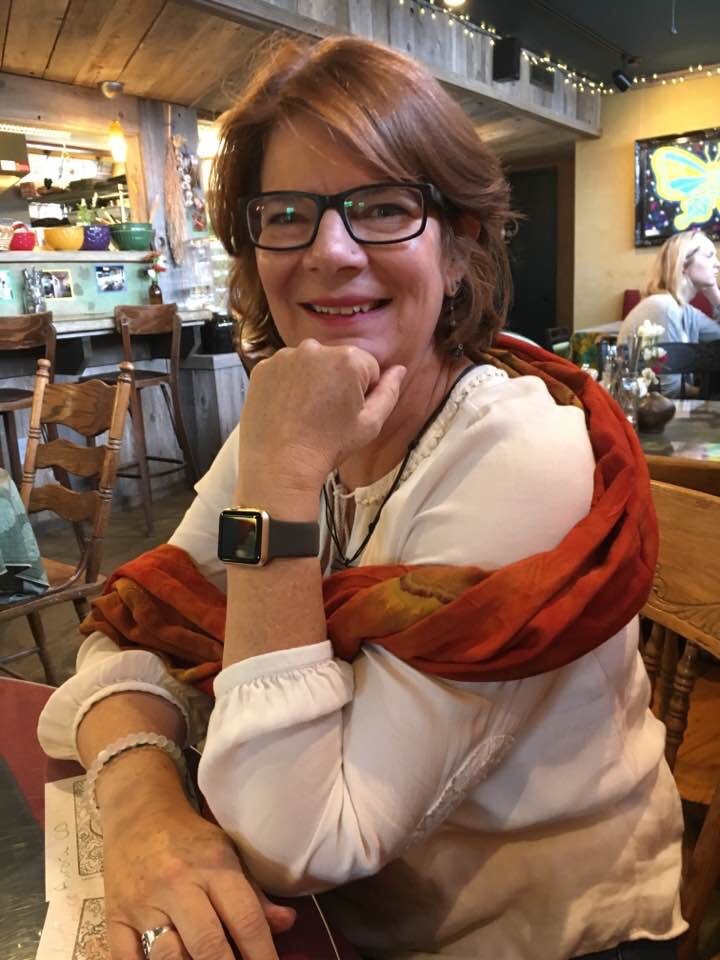
Alyssa Stebbing serves as Minister of Outreach and Youth Formation at Trinity Episcopal Church in The Woodlands and is a Bridges Out of Poverty trainer. Formed by her childhood experiences of living in poverty, she has clarity of insight with marginalized populations.
Alyssa’s parents were involved in the civil rights movement and led by example. Their strong commitment to serve forgotten and ignored communities was passed on to Alyssa. Her parents’ mission-centered ministry meant Alyssa’s childhood was spent living with Indigenous, Latino and African-American people mostly in very rural areas between Texas, New Mexico and Colorado. Her stories of this time in her life are powerful.
“I knew I was white, but I didn’t actually understand that I wasn’t seen as one of the kids I played with, until I got the age where I had to be bused because of the remoteness of where we lived,” Alyssa said. “There, I was met with Chicano hostility. I was floored. I had not experienced anything like that. I was always one of the kids. The adults had experienced stuff like that, but not me. The only thing I remember in the school was the one white teacher saying, ‘We have to stick together,’ and I was like, ‘Why?’ And I thought to myself, ‘You’re a teacher, I’m a kid, I’m going with them.’ I remember that clear as day.”
After nine years on staff at Compassion International, followed by many years more working on Native reservations, Alyssa developed a rooted understanding of generational poverty. She intuitively came to know what the Bridges Out of Poverty curriculum calls the hidden rules of class. These unspoken “rules” become stumbling blocks, and keep families in poverty for generations.
The Bridges Out of Poverty training unpacks existing mindsets of economic class. Taking apart these preconceptions is essential to working together across typically well-defined lines of class to allow communities the ability to work side by side and solve issues together. Relationships built on principles of respect and inclusion are key for building a foundation for working alongside one another. In her current role as a lay minister in a suburban church, Alyssa uses her life experience and Bridges Out of Poverty training in her ministry.
“Being informed both by my early life in poverty and now in middle class, helps me hear conversations of those who want to do something about poverty, and those who are in poverty,” said Alyssa.
“It’s all about building the long-term respect that needs to happen. Christ talks about the resourcefulness of what the poor gives us; the bridge happens when we receive that.”
The eight-hour Bridges Out of Poverty training engages preconceptions and reveals the challenges people face. Often, participants leave changed, with their old mindsets shifted and a greater resolve to meet people with curiosity rather than judgment.
“One woman said to me in one of the early Bridges trainings in The Woodlands, ‘You know, until I took this Bridges Out of Poverty, I’m driving through The Woodlands, there’s no problems anywhere. Then, it’s like you took the blinders off,” Alyssa explained. “She said, ‘I see it now. It’s not that I didn’t want to see it, I didn’t know what to see.’”
Alyssa said those kinds of comments from people are so helpful in understanding where they are and where we need to come together to really understand the Bridges Out of Poverty work.
“I think when they see some of the stories in Bridges, it’s not always the stereotype they think it is,” Alyssa said. “The assumptions people make about people who are poor are very hard to let go. There’s convenience in doing for others. It’s a lot more inconvenient to be with others. But it’s in the doing with others that you meet yourself; to be who God has created you to be.”
EHF will be hosting regional Bridges Out of Poverty training across the diocese in 2018. The training sessions will create an opportunity for area churches to partner and share in the training together with a community non-profit organization. Bridges Out of Poverty training has benefit for volunteers, staff, teachers, and social service employees. If you’re interested in knowing more about Bridges Out of Poverty training in your area, please email Melodee Toles or call 832-658-2662.